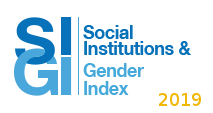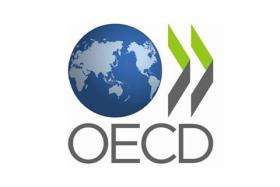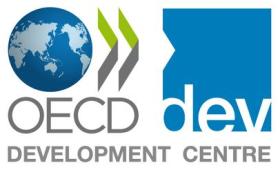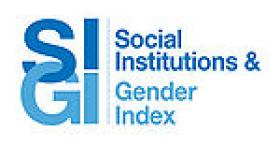Breadcrumb
- OECD - Social Institutions and Gender Index (SIGI) Database 2019

The Social Institution and Gender Index (SIGI) dataset address the de jure and de facto situations of discriminatory social institutions, combining both qualitative and quantitative data providing information information on laws, attitudes and practices across 180 countries. According to the original SIGI website:
"Discriminatory social institutions intersect across all stages of girls’ and women’s life, restricting their access to justice, rights and empowerment opportunities and undermining their agency and decision-making authority over their life choices. As underlying drivers of gender inequalities, discriminatory social institutions perpetuate gender gaps in development areas, such as education, employment and health, and hinder progress towards rights-based social transformation that benefits both women and men."
The first edition of the SIGI dataset was first launched in 2009, and then updated in 2012, 2014 and 2019. The SIGI 2019 is built around four sub-indices, namely discrimination in the family, restricted physical integrity, restricted access to productive and financial resources, and restricted civil liberties.
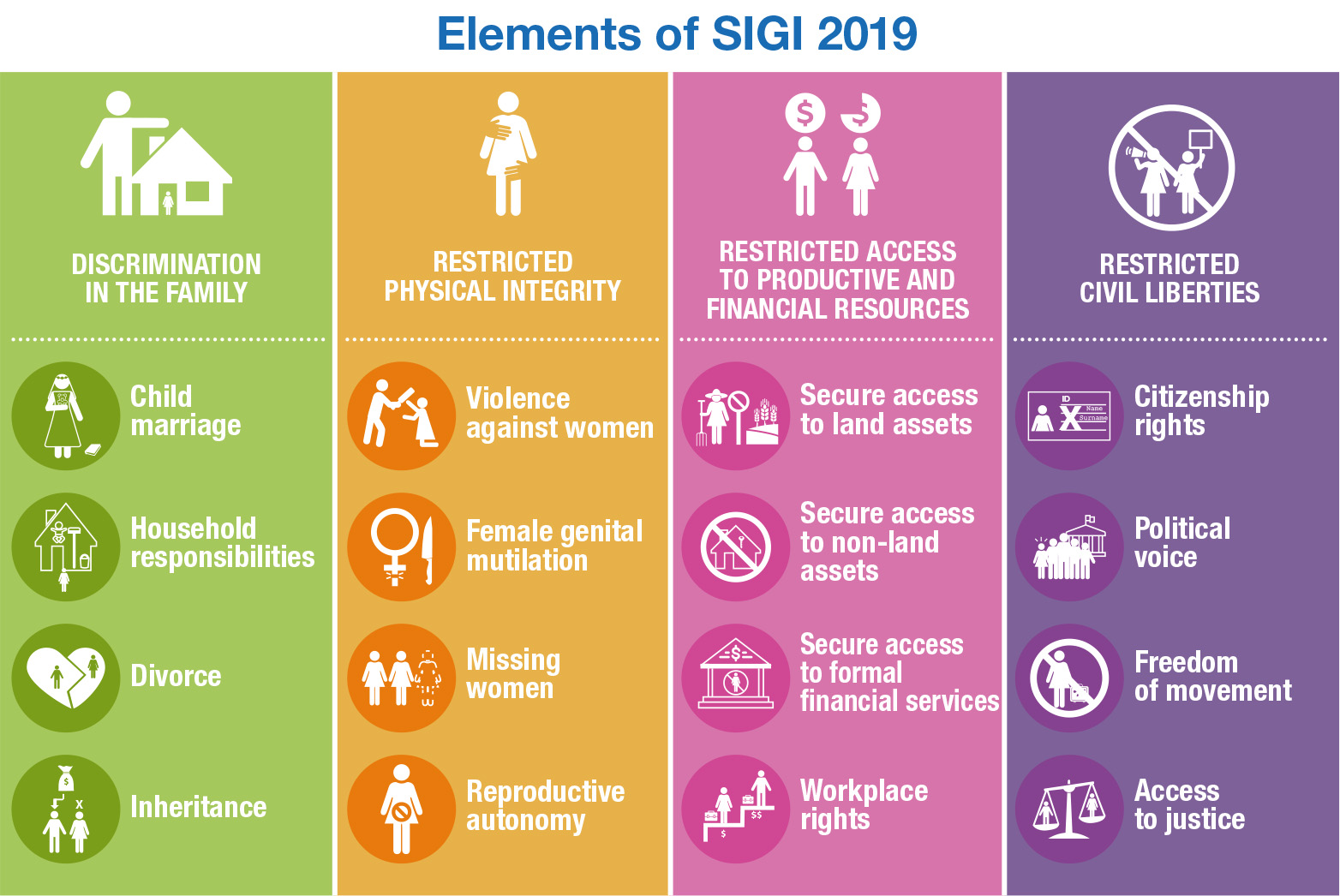
What are the objectives of the dataset?
What is the methodology?
-
14 categorical variables describing the level of discrimination in legal frameworks (for all SIGI indicators but two: missing women and FGM) – these variables are based on 144 questions out of the 312 used to draft the SIGI country profiles;
-
3 attitudinal variables describing the level of discrimination in social norms; and
-
10 variables on prevalence rates describing the level of discrimination in practices.
What are the main results?
While assessing 180 countries overall, the SIGI ranks 120 countries for which full information over all the index sub-components is available. In order to assist the interpretation of the data and results, Countries are grouped by level of discrimination in five categories, with higher values of the index reflecting higher levels of discrimination:
-
Very Low (SIGI ≤ 20%): According to SIGI 2019, currently 32 countries, representing 27% of the countries ranked, have very low levels of gender discrimination in social institutions;
-
Low (20% < SIGI ≤ 30%): 43 countries (36% of the countries ranked) have low levels of gender discrimination in social institutions;
-
Medium (30% < SIGI ≤ 40): 16 countries(13% of the countries ranked) have medium levels of gender discrimination in social institutions;
-
High (40%<SIGI ≤ 50%): 17 countries, representing 14% of the countries ranked;
-
Very High (SIGI>50%): 12 countries, representing 10% of the countries ranked.
Currently, 24% of the countries ranked in the SIGI 2019 - that is almost one country every four - show high or very high levels of gender discrimination in social institutions.
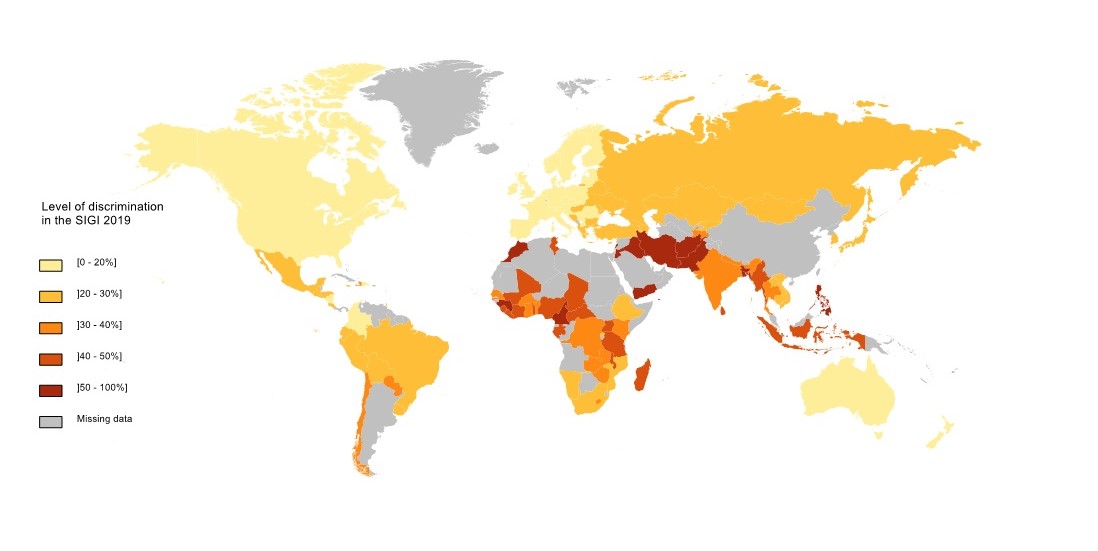
Source: SIGI categories 2019
Who is involved?
Donors:
License:
Except where additional restrictions apply, You can extract from, download, copy, adapt, print, distribute, share and embed Data for any purpose, even for commercial use. You must give appropriate credit to the OECD by using the citation associated with the relevant Data. (source OECD Terms and conditions).
Official site:
Related issues
Related LandVoc tags
Download this Dataset data.

